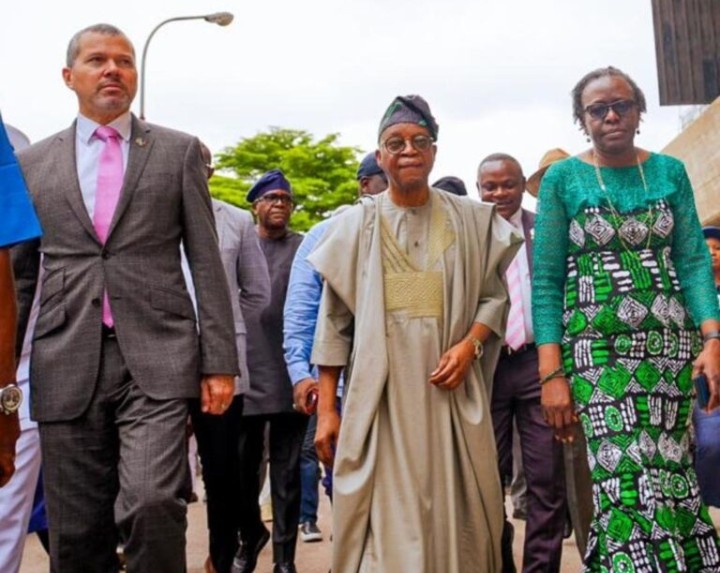
L-R: Secretary-General of the International Maritime Organization (IMO), Arsenio Domínguez; Minister of Marine and Blue Economy, Adegboyega Oyetola and the Deputy Vice Chancellor (Academics and Research), University of Lagos, when the IMO Secretary-General visited the Institute of Maritime Studies at the university.
The Minister of Marine and Blue Economy, Adegboyega Oyetola has affirmed that in no time, the maritime industry will overtake the oil and gas sector in boosting Nigeria’s economy as a result of the continuous development and growth in the industry.
While delivering his speech during the Secretary General of the International Maritime Organization (IMO), Arsenio Dominguez’s working visit to the Institute of Marine Studies, University of Lagos (UNILAG) on 3rd October, 2025 he re-emphasised the need to encourage Nigerian youths to be fully involved in exploring and harnessing the blue economy.
Oyetola stated that job opportunities await graduates of marine studies while he pledged to support capacity building and infrastructure development for students at the University.
“I can assure you that the maritime sector will take over from Nigerian National Petroleum Corporation (NNPC).We will support this institution in providing the necessary infrastructure.”
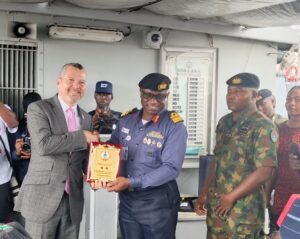
The Director General of Nigerian Maritime Administration and Safety Agency (NIMASA) , Dr. Dayo Mobereola pointed that one of the four pillars of NIMASA as an agent of maritime institutional development in Nigeria is capacity building of which the institute that was donated by the agency is an evidence.
He stressed that the purpose of the support is to encourage youths to be interested in maritime studies because without trade, the world would not have moved far.
“Maritime facilitates trade, development, economic growth and employment.This is an opportunity to try and get the youths to be interested in maritime. We at NIMASA will continue to develop strategies in order to ensure that we get the youths involved and also reduce the unemployment that we are facing generally in the world. We shall continue to contribute our quotas as agents of the government and also as part of the Ministry of Marine and Blue Economy.”
Arsenio Dominguez revealed that the IMO is carrying out several projects that involve the transitioning from fossil fuels to low-carbon and renewable energy sources.
He advised the institute to consider using the e-learning courses that are produced and made available through the World Maritime University as well as some of the curriculum available.
“An area where we have several projects with Nigeria is part of the Green Water Strength Initiative and the development of the National Action Plan that we can link immediately to the institute.I do want to look forward to the next visit to Nigeria, where the building is going to be full of professionals.
The Deputy Vice-Chancellor of Academics and Research at UNILAG, Professor Bolanle Olufunmilayo Oboh who represented the Vice Chancellor, Professor Folasade Ogunsola disclosed that the Institute has graduated over 2,000 students, and registered over 400 students for the present academic session.
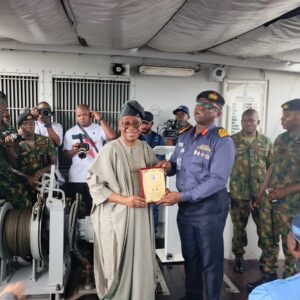
According to her, students of the institute range from a spectrum of organizations including NIMASA, Nigerian Ports Authority (NPA), Nigerian Navy, Nigerian Shippers Council (NSC), and a number of private shipping companies.
Oboh sought the IMO’s support in improving the skills and abilities of students of the institute and completion of the building project.
She expressed gratitude to the federal government, most especially the management NIMASA for their continued support in the establishment and development of the Institute, particularly in providing the building.
“The Institute is strategically positioned to undertake cutting-edge and impactful research that addresses emerging challenges and trends in the maritime sector. We will count on continued partnership and collaboration with the IMO, especially in areas of capacity building and completion of modern research equipment.”
The IMO SG also paid visit to the NIMASA Resource Development Center, Kirikiri, Lagos , the Nigerian Naval Dockyard, Apapa and the International Maritime Institute of Nigeria (IMION).






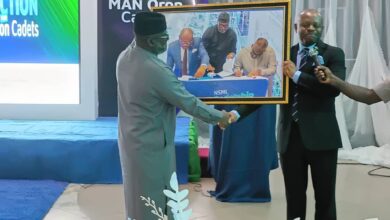
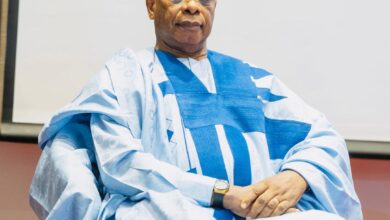
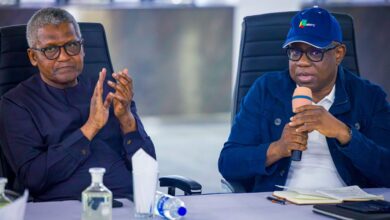
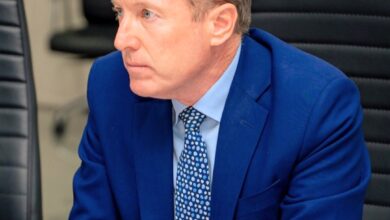

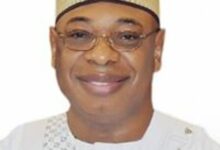
One Comment